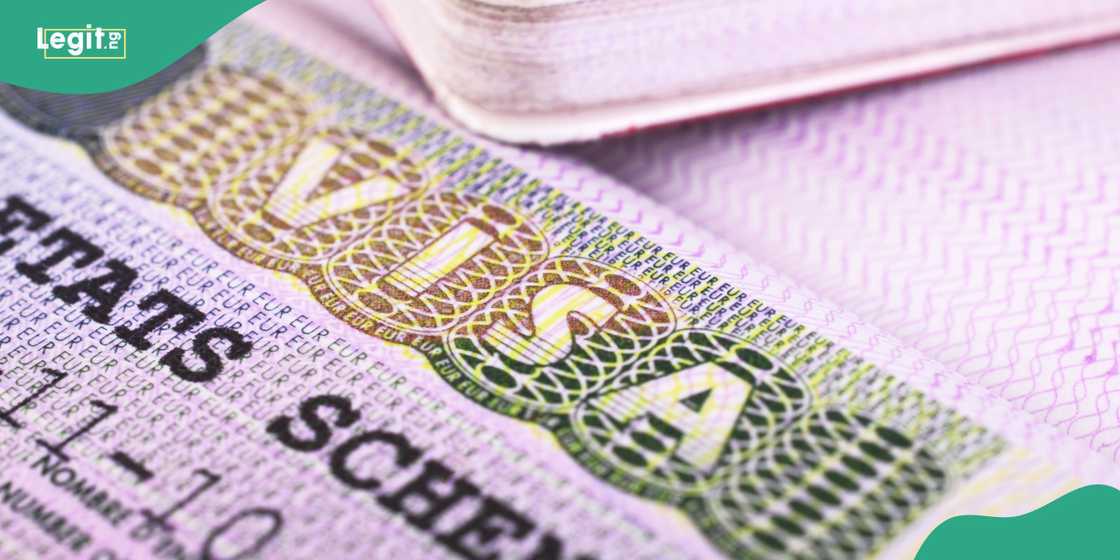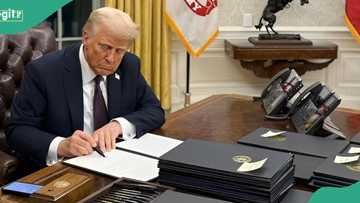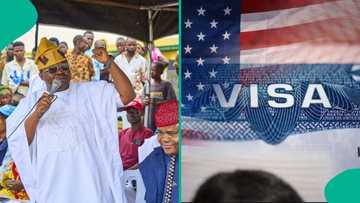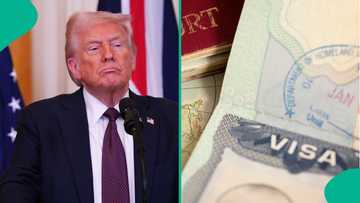U.S. Imposes Visa Bond Requirement on Zambia, Malawi Under New Pilot Scheme
- The United States will begin requiring visa applicants from Zambia and Malawi to pay bonds of up to $15,000 under a new pilot programme aimed at curbing overstays
- The initiative, set to launch on 20 August 2025, targets travellers seeking B1/B2 tourist and business visas
- Applicants must enter and exit the U.S. through designated airports and will receive refunds if they comply with visa terms
The Trump administration has announced a new visa bond pilot programme that will require certain travellers from Zambia and Malawi to post financial guarantees of up to $15,000 when applying for B1/B2 tourist and business visas.
The measure, set to take effect on August 20, 2025, is aimed at curbing visa overstays and enhancing national security, according to a statement released by the U.S. State Department on Tuesday.

Source: Getty Images
“Starting August 20, 2025, any citizen or national traveling on a passport issued by one of these countries who is found otherwise eligible for a B1/B2 visa must post a bond in amounts of $5,000, $10,000, or $15,000, determined at time of visa interview,” the department said in a notice published on its website.
Consular discretion and overstay data
The programme grants U.S. consular officers worldwide the discretion to impose visa bonds on applicants from countries identified as having high rates of visa overstays. Although the initial notice appeared on the Federal Register on Monday without naming specific nations, Zambia and Malawi were later confirmed as the first to be included.
A State Department spokesperson, speaking anonymously, explained that countries would be selected based on “high overstay rates, screening and vetting deficiencies, concerns regarding acquisition of citizenship by investment without a residency requirement, and foreign policy considerations.” The spokesperson added that the list of affected countries may be updated periodically.
According to U.S. Customs and Border Protection data from fiscal year 2023, several African nations—including Burundi, Djibouti and Togo—also recorded elevated overstay rates, suggesting that further additions to the programme may be forthcoming.
Visa bond refunds and travel restrictions
The bond, which ranges from $5,000 to $15,000, will be refunded to applicants who comply fully with the terms of their visa and depart the United States within the authorised timeframe.
However, visa holders subject to the bond requirement must enter and exit the country through one of three designated airports: Boston Logan International Airport, John F. Kennedy International Airport in New York, or Washington Dulles International Airport.
Trump administration’s immigration crackdown
The visa bond initiative is the latest in a series of immigration-related measures introduced under President Donald Trump, who has made reducing illegal immigration a cornerstone of his presidency. His administration has increased funding for border enforcement and expanded efforts to detain individuals residing in the U.S. unlawfully.
In June, Trump issued a travel ban affecting citizens from 19 countries, citing national security concerns. The new visa bond policy appears to be a continuation of that broader strategy, targeting nations deemed to pose a risk due to visa compliance issues.

Source: Getty Images
US visa bonds: Tourists may face up to $15,000
Legit.ng earlier reported that tourists visiting the United States could soon be required to pay bonds of up to $15,000 (€13,000) under a new pilot initiative designed to reduce visa overstays, according to a government notice released ahead of its official publication.
The programme, set to launch on 20 August, was proposed by the US State Department and will run for approximately one year. It will apply to B-1 and B-2 nonimmigrant visa holders, typically issued for business and tourism purposes.
The measure comes amid broader efforts by the Trump administration to tighten immigration controls and address undocumented migration.
Source: Legit.ng





